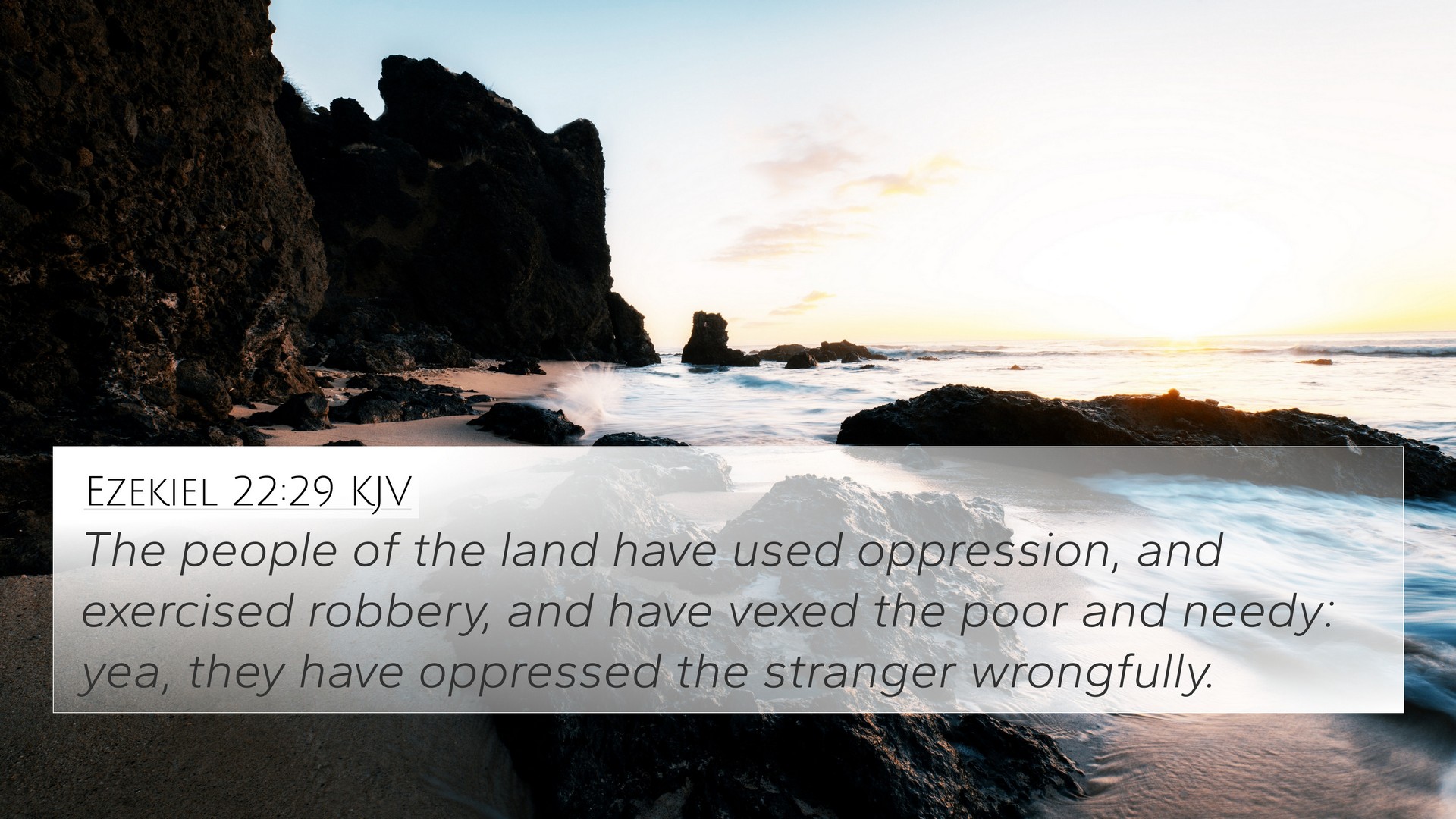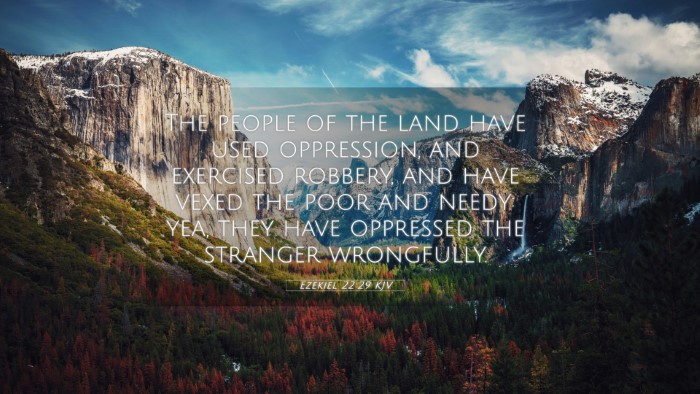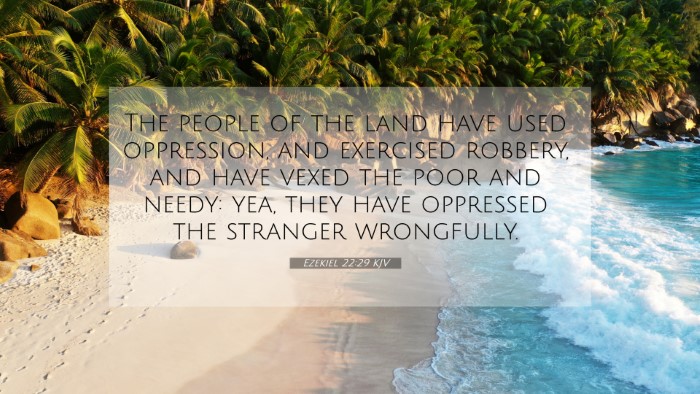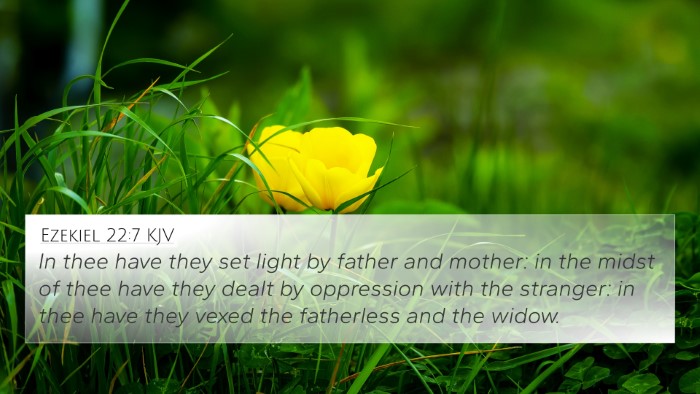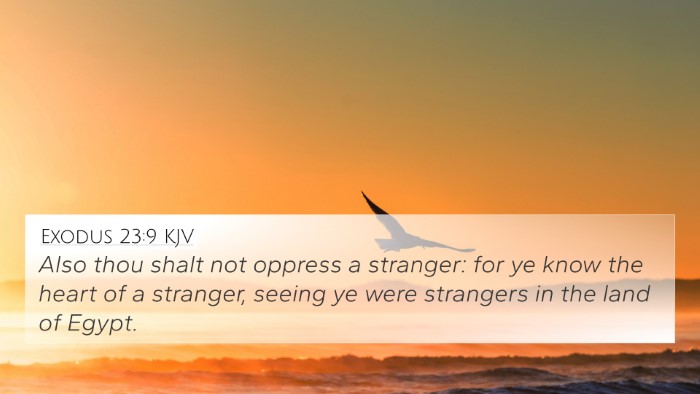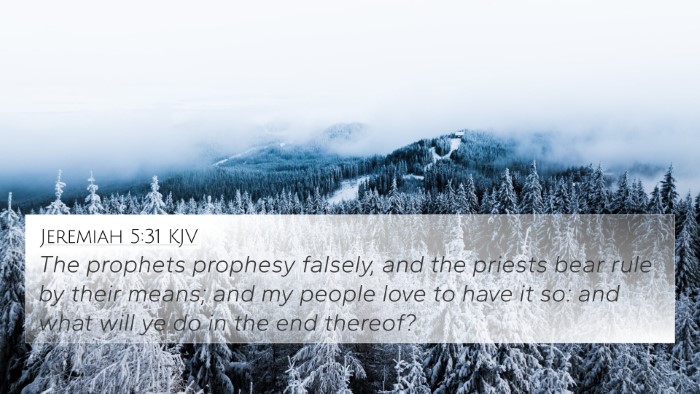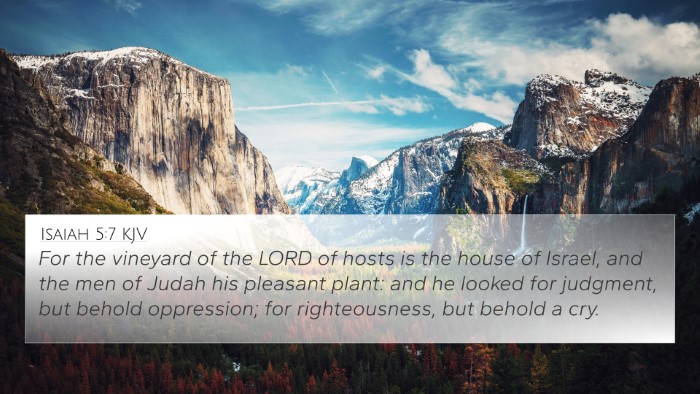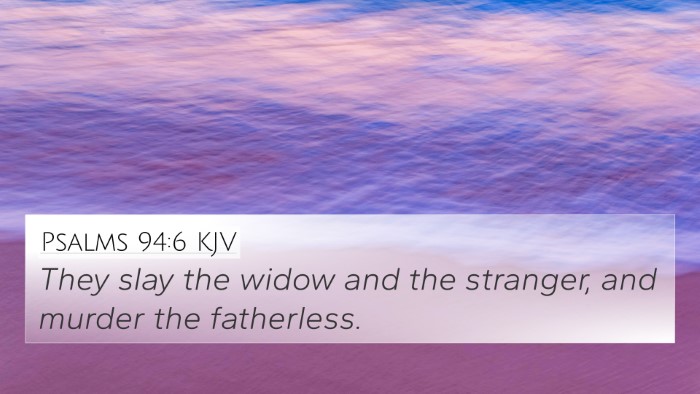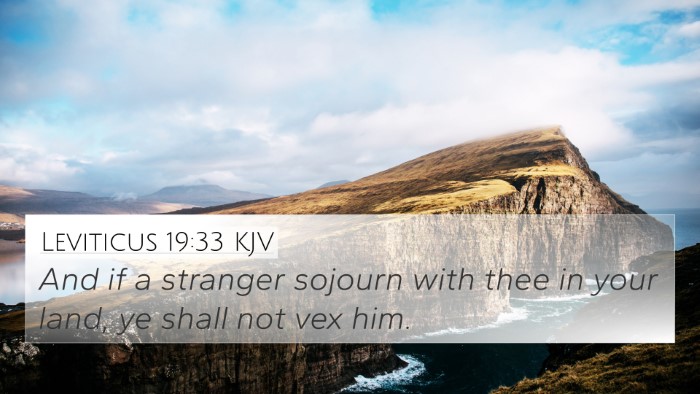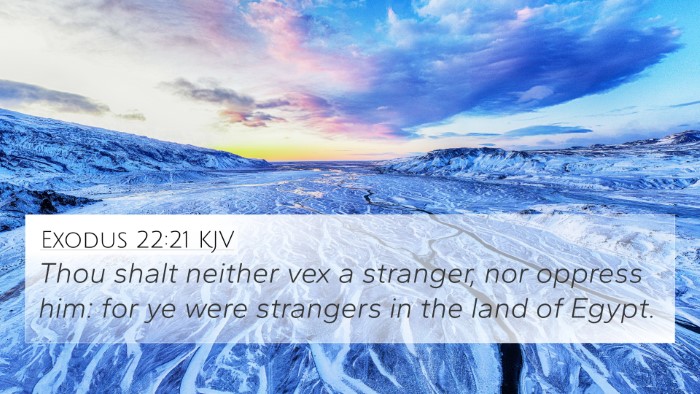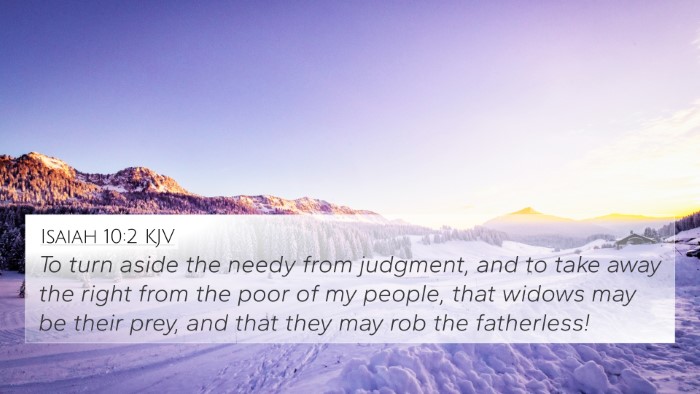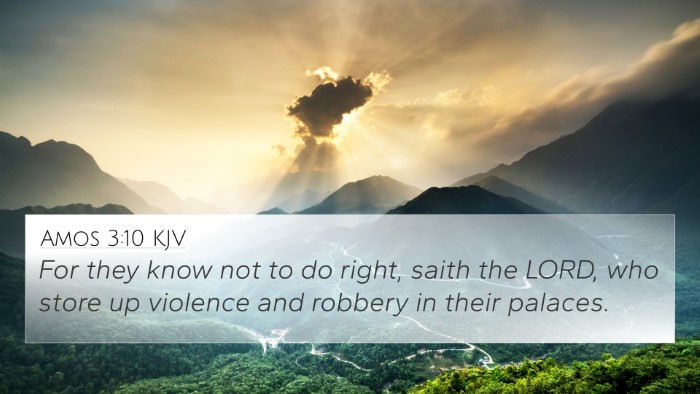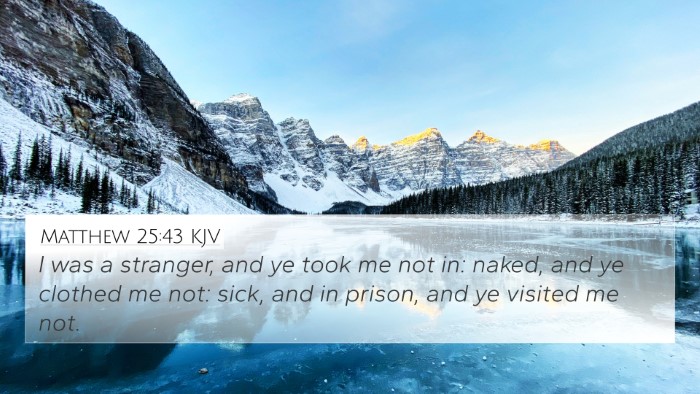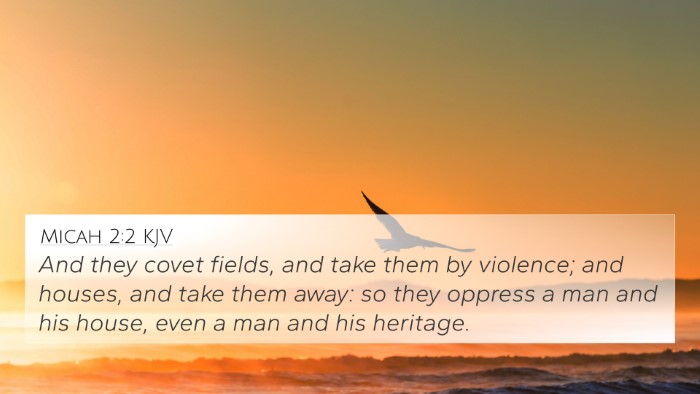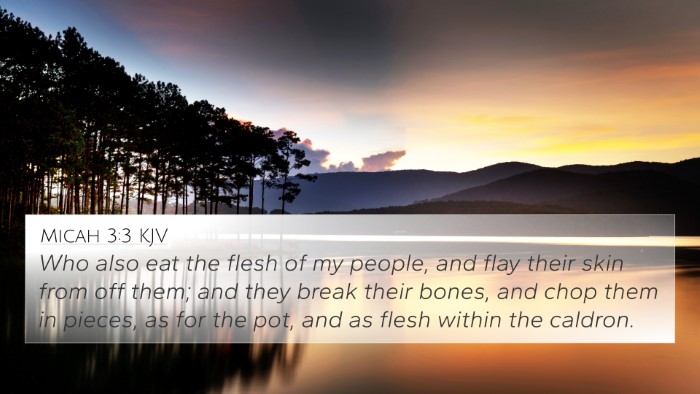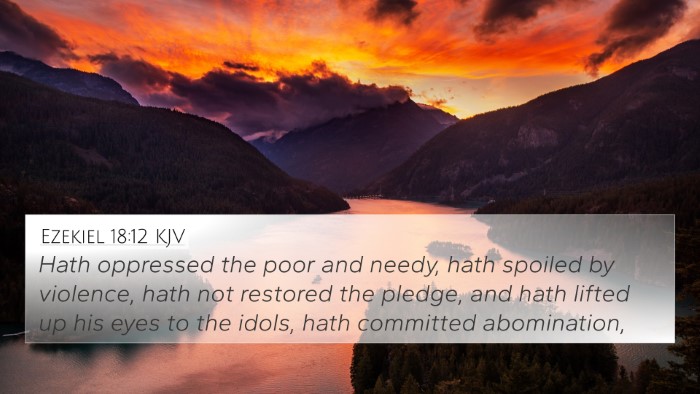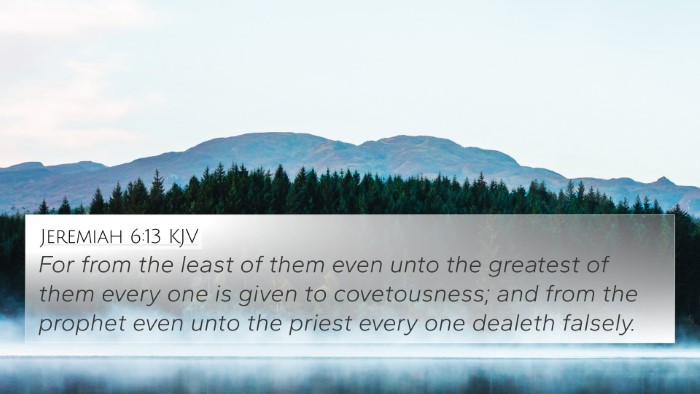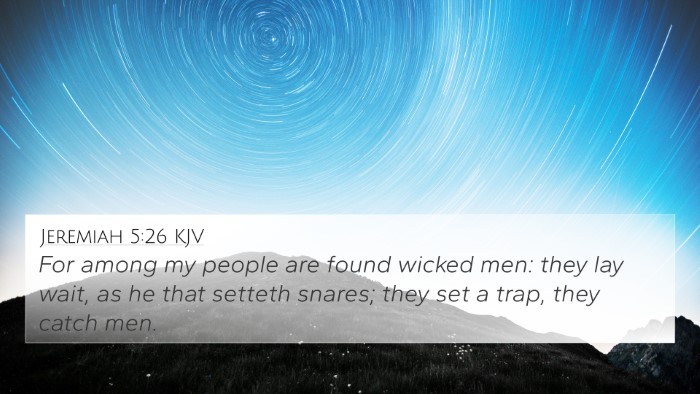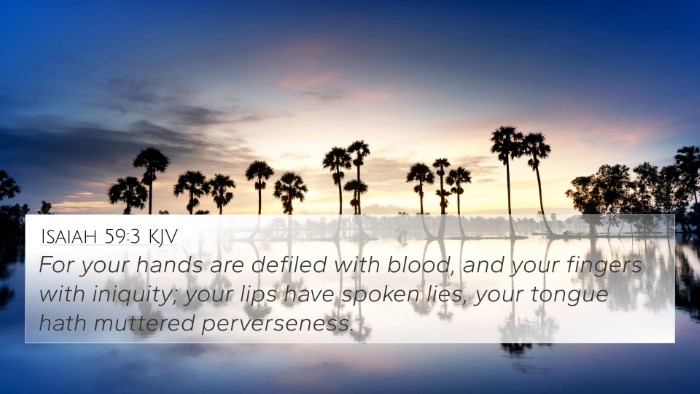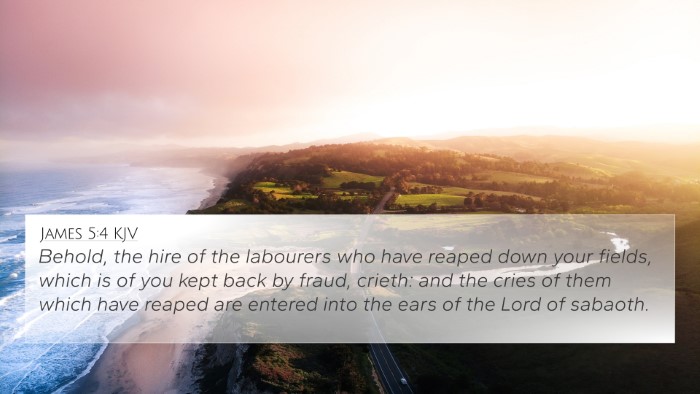Ezekiel 22:29 - Summary and Commentary
Bible Verse: "The people of the land have used oppression, and exercised robbery, and have vexed the poor and needy: yea, they have oppressed the stranger wrongfully."
This verse from Ezekiel highlights the moral and ethical degradation of the society during the prophet's time. The prophet conveys a stark message about the sins prevalent among the people of Israel, emphasizing their exploitation of the vulnerable, including the poor, needy, and strangers in their midst.
Interpretation and Insights
The commentaries bring various perspectives to this text, providing deeper insights into its meaning:
- Matthew Henry: He notes that the overall judgment falls upon the societal leaders and the common people alike for their collective sins. The oppression of the poor and needy signifies a grave violation of the covenantal obligations that Israel had towards the less fortunate. It reflects a disregard for justice and mercy, foundational principles of God's law.
- Albert Barnes: Barnes emphasizes that the injustice highlighted in this verse represents a betrayal of the moral fabric that should characterize God's chosen people. He explains that the oppression of the stranger (non-Israelites) also indicates a failure to embody the love and kindness that God commands, resulting in societal decay.
- Adam Clarke: Clarke points out that the verse illustrates the consequences of a nation turning away from God's commandments. He interprets the acts of robbery and oppression as manifestations of a greater spiritual downfall, leading to dire consequences both personally for individuals and collectively for the nation.
Cross-Referencing Biblical Texts
In studying Ezekiel 22:29, several key cross-references enhance understanding:
- Proverbs 14:31: "He who oppresses the poor reproaches his Maker, but he who honors Him has mercy on the needy."
- Isaiah 1:17: "Learn to do good; seek justice, correct oppression; bring justice to the fatherless, plead the widow's cause."
- Zechariah 7:10: "Do not oppress the widow, the fatherless, the sojourner, or the poor, and let none of you devise evil against another in your heart."
- Micah 6:8: "He has told you, O man, what is good; and what does the Lord require of you but to do justice, and to love kindness, and to walk humbly with your God?"
- Jeremiah 22:3: "Thus says the Lord: Do justice and righteousness, and deliver from the hand of the oppressor him who has been robbed."
- Luke 3:14: "And soldiers also asked him, 'And we, what shall we do?' And he said to them, 'Do not extort money from anyone by threats or by false accusation, and be content with your wages.'"
- James 2:6: "But you have dishonored the poor man. Are not the rich the ones who oppress you, and the ones who drag you into court?"
Connecting Themes and Comparative Analysis
The connections between these verses and Ezekiel 22:29 reveal a consistent theme throughout Scripture concerning justice, mercy, and righteousness:
- Old and New Testament Links: The recurring admonitions against oppression in both the Old and New Testaments demonstrate the timelessness of God's concern for justice.
- Sociocultural Context: Understanding the historical backdrop of Israel's failures aids in grasping the magnitude of these injustices, emphasizing how societal values can degrade.
- Character of God: The overarching narrative provides insight into God's character—a God who desires justice and compassion from His people.
Tools for Bible Cross-Referencing
For those looking to delve deeper into the themes of Ezekiel 22:29 and its related scriptures, here are some resources:
- Bible concordance: A valuable tool to locate specific words and themes throughout Scripture.
- Bible cross-reference guide: Helps identify verses that relate to each other across various contexts.
- Comparative Bible verse analysis: Engage in studies that draw parallels between different passages.
- Bible reference resources: Essential for comprehensive study of inter-Biblical themes.
Conclusion
The verse Ezekiel 22:29 serves as a poignant reminder of the ethical responsibilities of those who follow God's commandments. It calls for introspection concerning the treatment of the vulnerable and the importance of societal justice. Through cross-referencing and thematic exploration, believers can gain a richer understanding of God's Word and its implications for modern faith and practice.
